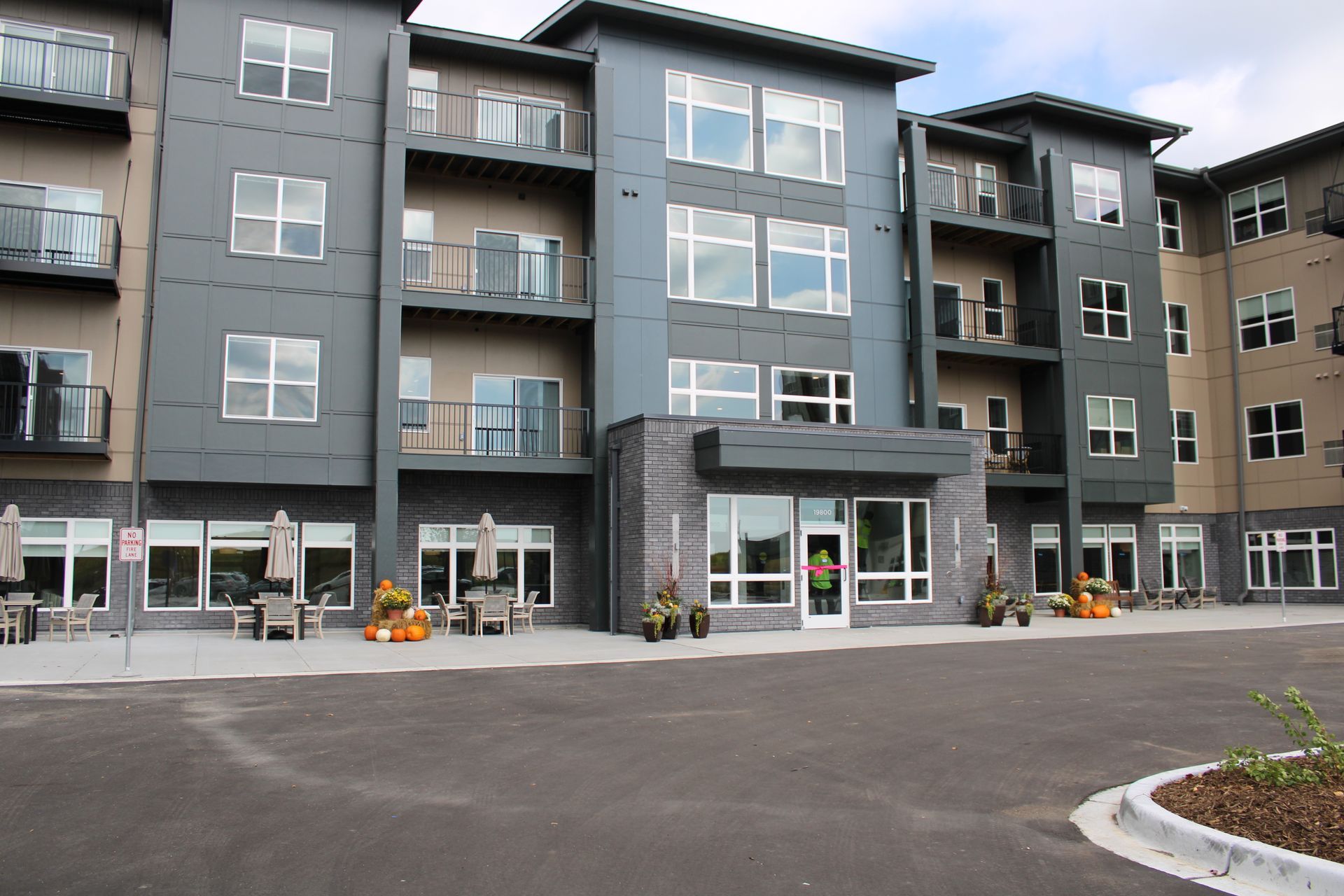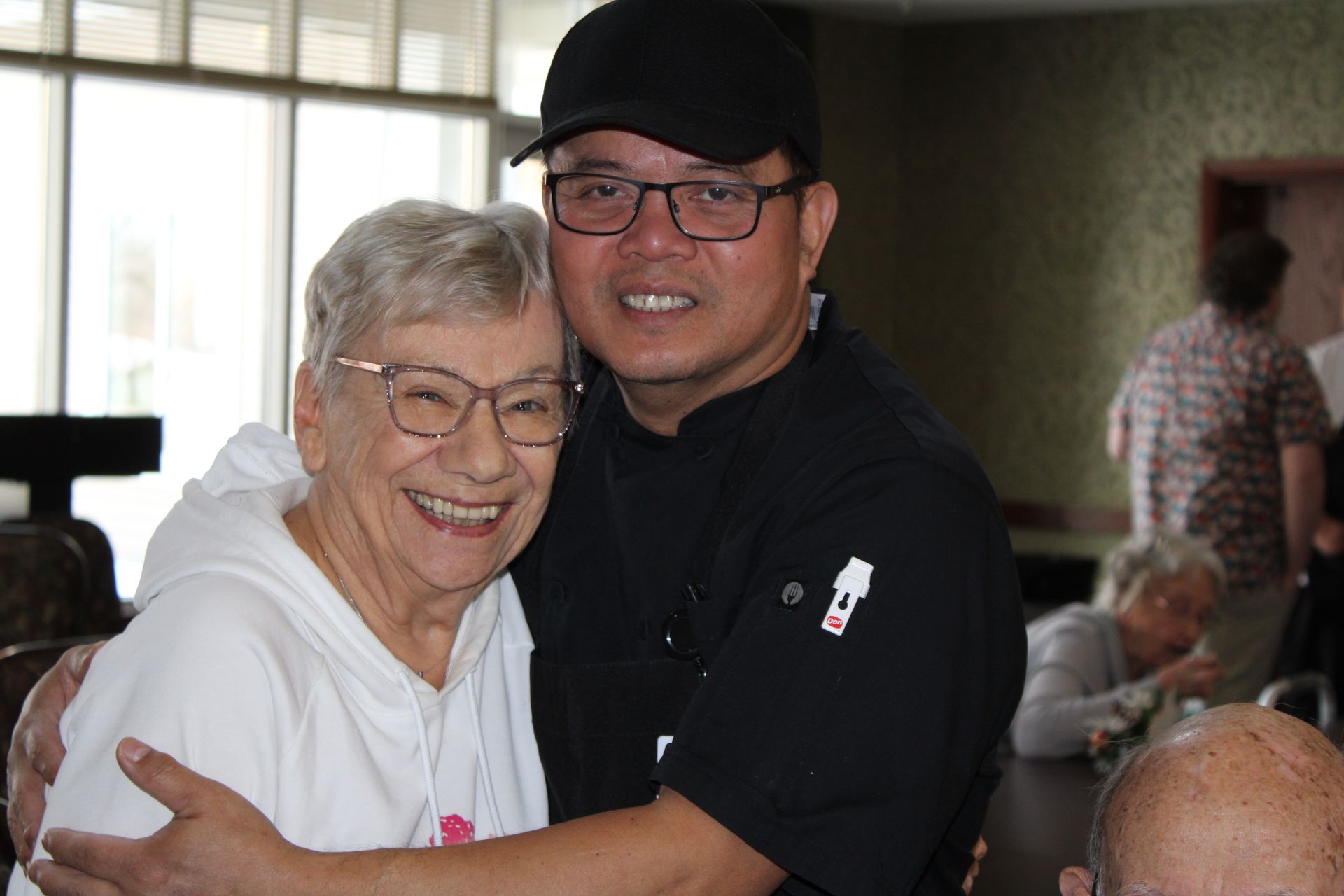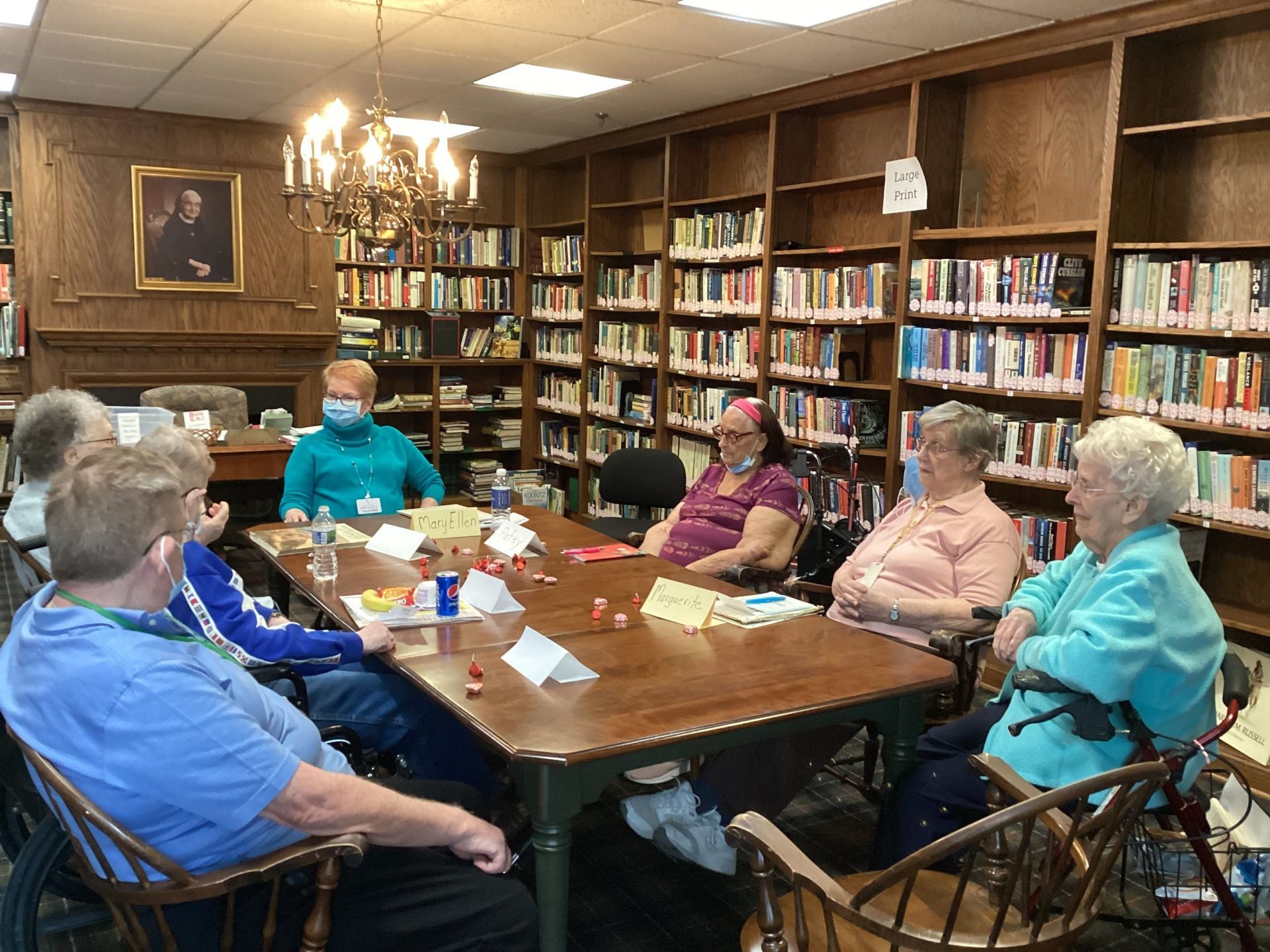
The Benefits of Storytelling for Older Americans
You may not realize it but the simple act of telling stories, or storytelling, benefits healthy cognition for everyone, including older adults.
Good storytelling was once a survival skill and one that has been highly valued throughout history. Through the years, elders in our communities shared stories which fed society’s knowledge, history, and wisdom. Now, research suggests that seniors who tell stories actually benefit just as much as those who listen to them[1]. Research has found health benefits from storytelling include mental stimulation, improved memory, creativity, positive social connections, and increased activity among older adults.[2]
And as we recognize June as Alzheimer’s and Brain Awareness Month, it’s good to know that studies have also found that both cognitive function and quality of life measures appear to improve with storytelling.
Storytelling, especially when part of a group, is a powerful way to increase happiness.[3] Researchers found that if someone is fortunate enough to grow into old age, taking part in a storytelling circle—one that provides a positive and accepting environment—may provide the basis for increased resilience (meaning, being able to withstand or to recover quickly from difficulties).
It seems then that the residents at Saint Therese of New Hope and Saint Therese at Oxbow Lake had the right (and great) idea when they formed storytelling groups in the senior communities years ago. They may not have known about the research, but they’ve benefited all the same.
Mary Ellen Bruski, a volunteer at New Hope, started the writing group in 2011. “I am not a writing teacher, but writing is part of who I am. And I wanted to encourage others to do the same,” she said.
The group at New Hope (in group photo above) is relatively small in numbers, five or six residents take part at most, but not in spirit. Most of the stories that are shared are those from the residents own lives. It has evolved from a “writing group” to what’s now called the “Writing & Storytelling Group.” The change was made because it became harder for participants to write longhand. And there also may have been a misconception that you had to be a good writer to participate.
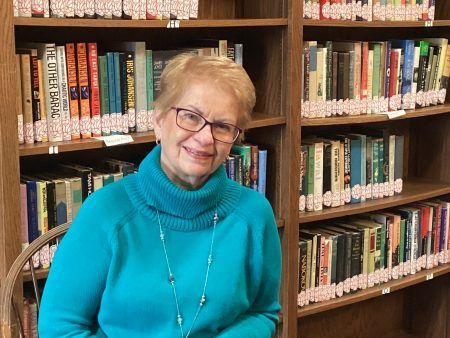
“This group is for everyone who wants to tell stories. If writing is a hangup for someone, that’s fine, but we can all tell stories, all the days of our lives, said Mary Ellen.
Each month Mary Ellen chooses a topic for the monthly meeting. For instance, one topic was “what is on your bucket list?” The answers included visiting a brother-in-law in New Prague, attending a wedding in Madison, and becoming a pastoral minister.
Alice Ellison, a resident at Saint Therese at Oxbow Lake, started the writers’ group five years ago. She said she wanted to record some of her family history and thought others would as well. She received guidance from her daughter-in-law, Joanie Jarvis Ellison, a published Minnesota author, who twice met with the group to offer pointers on how to get started and how to encourage one another.
Alice said they usually have about seven people attend their meetings which often have a suggested topic, like “early school experiences” or “what do you remember about the Towers going down on 9/11.”
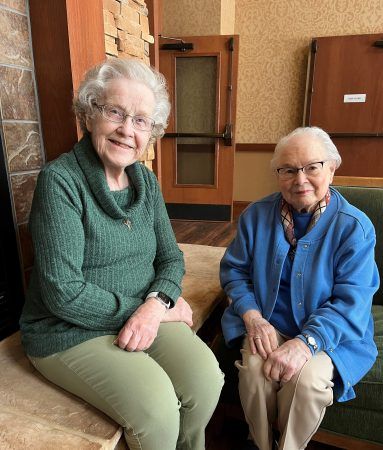
She talked about one resident who wrote about the history of a table that had been in the family for many years, a table that now is in her apartment at Oxbow Lake. The resident brought pictures of the table to the meeting, and eventually sent the story to other members of her family. Alice wrote about her brother who she’d lost at age 25 and also sent the story in a letter to her family.
Alice said she started the group because she realized everyone comes from different backgrounds and it was interesting to hear about the distinctions. For instance, how growing up on a farm was so different from growing up in the city.
Like New Hope, the Oxbow Lake group changed its name to the “Storytellers” because, said Alice, “residents thought we were teaching writing and it discouraged participation.”
Alice is so passionate about the stories written, and told, that she is gathering the stories, having volunteers help type them up, and has put them in a binder located in the Oxbow Lake library.
“I think it’s really valuable to preserve these stories,” said Alice. “It’s history and if we don’t write it down, it will be lost.”
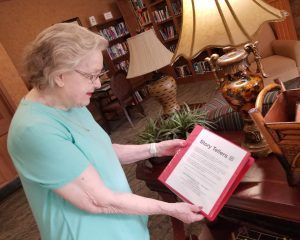
[1] “The Effects of Storytelling on Cognition,” Better Aging, August 18, 2019.
[2] “Stimulating Creativity in All Elders, A Continuum of Interventions,” Care Management Journals, February 2004
[3] “The Effects of Storytelling on Happiness and Resilience in Older Adults,” SOPHIA, St. Catherine University, May 20, 2015.
About
At Saint Therese, our heartfelt purpose since 1968 has been a people first approach to living well by providing senior care and services where every life we touch feels welcomed, respected, and heard. We achieve this by doing ordinary things with extraordinary love every single day. Contact us to learn more.
